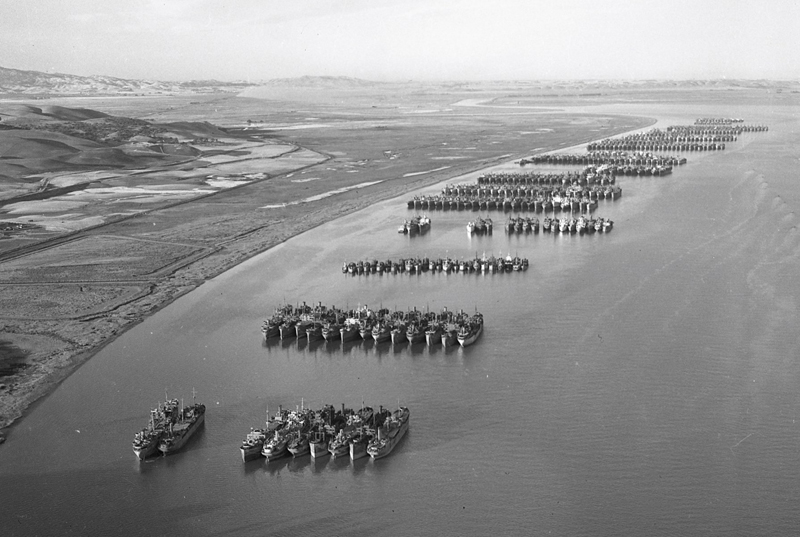Remembering the Mothball Fleet

CONTRA COSTA COUNTY, CA — As you head over the Benicia-Martinez Bridge, you might notice there is nothing left of the Mothball Fleet – the once proud veterans of war.
During World War II, the Richmond shipyards operated 24 hours a day, seven days a week. Rosie the Riveters, women who made up 41 percent of the workforce, produced as many as three ships a day.
Permanente Shipyards No. 1 and 2 built 489 of the 2,710 Liberty ships launched during the war. The Jeremiah O’Brien, now a floating museum in San Francisco, is one of three remaining today.
After the war, some of the cargo ships joined a fleet that once numbered 360 vessels anchored just north of the Benicia-Martinez Bridge in Suisun Bay. Known as the Mothball Fleet, the ships remained stored away for use in future conflicts.
Museums and movies
Some of the ships came back into active service as troop carriers to Korea and fuel suppliers for warships during the Vietnam and Gulf wars. The USS Iowa became a floating museum in Pearl Harbor. The Glomax Explorer, a mystery ship built to recover a Russian submarine, sold for $15 million. It ended up in China as scrap metal. Filmmakers also used the ships in movies, including “Magnum Force,” “Up Periscope” and “The Killer Elite.”
But the fleet became obsolete as cargo planes grew larger and more capable of moving men and supplies to distant conflicts.
Environmentalists were concerned that the ships were contaminating the water, and a deadline of September 2012 was set for selling or scrapping the 28 ships in the worst condition. The remaining obsolete ships had to be removed by September 2017.
The first two ships, built at the Permanente shipyards in Richmond, went to Vallejo for cleaning. Later it went to Texas for recycling at a cost of $2 million. The last ship left the bay in August 2017, ahead of schedule.
A History Note is presented by the Contra Costa County History Center, 724 Escobar St., Martinez, using materials from the society’s collections. The center is open 9 a.m.-4 p.m. Tuesdays, Wednesdays and Thursdays and 10 a.m.-2 p.m. the first and third Saturdays. Visit cocohistory.org or join us at facebook.com/cocohistory.
